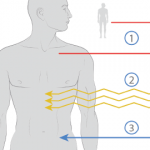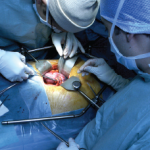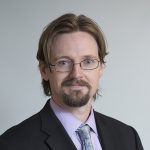Keith Sullivan, MD, Receives Lifetime Achievement Award
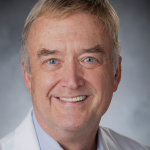 Mentorship, collaboration and a quest for cure shine through as major themes in the distinguished career of Keith M. Sullivan, MD, the James B. Wyngaarden Professor of Medicine, Duke University Medical Center, Durham, N.C. On Friday, Feb. 21, those themes dominated his acceptance speech when he received a Lifetime Achievement Award from the American Society for Transplantation and Cellular Therapy.
Mentorship, collaboration and a quest for cure shine through as major themes in the distinguished career of Keith M. Sullivan, MD, the James B. Wyngaarden Professor of Medicine, Duke University Medical Center, Durham, N.C. On Friday, Feb. 21, those themes dominated his acceptance speech when he received a Lifetime Achievement Award from the American Society for Transplantation and Cellular Therapy.
Dr. Sullivan was a co-founder and served as the second president of the society, originally called the American Society for Blood and Marrow Transplantation. His research career began at the University of Washington and the Fred Hutchinson Cancer Research Center in Seattle, where he enjoyed collaboration with some of the giants in marrow transplantation, including Rainer Storb, MD, and the late Nobel laureate E. Donnall (Don) Thomas, MD.
Dr. Sullivan and co-authors published on the late complications of allogenic bone marrow transplantation (BMT) and chronic graft-versus-host disease, and he and Mark Walters, MD, conducted the first multicenter trial of BMT as a cure for severe sickle cell disease.
In the mid-1980s, two articles in PNAS (Proceedings of the National Academy of Sciences of the United States of America) sparked his interest in stem cell transplant for autoimmune disease. The late Robert A. Good, MD, PhD (the father of modern immunology), demonstrated that total body irradiation and allogenic BMT could prevent and even reverse organ damage in animals with inherited autoimmune diseases. In another preclinical paper in PNAS, the late Dirk van Bekkum, MD, used total body irradiation and autologous transplant to reverse antigen-induced autoimmune disease.
Dr. Sullivan and his colleagues saw a role for autologous stem cell transplant in treating patients with severe autoimmune diseases. They convened a global panel of rheumatology and transplant experts and identified systemic sclerosis as the initial target for myeloablative autologous hematopoietic stem cell transplant. With funding from the National Institutes of Health (NIH), they conducted a pilot study that showed remarkable reversal of dermal fibrosis.
The subsequent trial, known as the SCOT (Scleroderma: Cyclophosphamide or Transplantation) study, confirmed superior outcomes with transplant in individuals with severe scleroderma. (Sullivan KM, Goldmuntz EA, Keyes-Elstein L, et al. Myeloablative autologous stem-cell transplantation for severe scleroderma. N Engl J Med. 2018;378[1]:35–47.)
Dr. Sullivan notes the quest for cure spans disciplines, centers and countries. That quest, he says, “has given me the opportunity and great pleasure of working with many innovators in rheumatology and transplantation. My hope is that these transdisciplinary collaborations and friendships will have a bi-directional benefit in our quest for cure.”
Just as he gained immense respect for the problem-solving abilities of his mentors—all with different personalities but working together and supporting one another—Dr. Sullivan has strived to nurture the next generation of medical scientists. For the past 18 years, he has organized the Outer Banks Research Skills Retreats, hosting more than 700 fellows from 12 southeast and mid-Atlantic universities. These three-day retreats are immersion courses designed to keep fellows and their families in academic medicine and foster the next generation of successful physician scientists.
“This next generation will exploit molecular and clinical discoveries to bring forward improved treatments for morbid and mortal disorders including severe autoimmune diseases,” says Dr. Sullivan.
Daniel Aletaha, MD, MCHS, MBA, Now MedUni Vienna’s Division of Rheumatology Chair
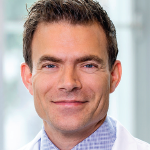 On July 1, 2019, Daniel Aletaha, MD, MCHS, MBA, was appointed chair of MedUni Vienna’s Division of Rheumatology in the Department of Medicine III. Dr. Aletaha began his study of medicine at the Medical Faculty of the University of Vienna (now called Medical University of Vienna), where he completed his specialty training in rheumatology. He also did a research stint from 2004–2006 at the National Institutes of Health, Bethesda, Md. He holds a Master of Clinical Health Science degree from Duke University, Durham, N.C., and obtained an MBA from Danube University Krems in 2019.
On July 1, 2019, Daniel Aletaha, MD, MCHS, MBA, was appointed chair of MedUni Vienna’s Division of Rheumatology in the Department of Medicine III. Dr. Aletaha began his study of medicine at the Medical Faculty of the University of Vienna (now called Medical University of Vienna), where he completed his specialty training in rheumatology. He also did a research stint from 2004–2006 at the National Institutes of Health, Bethesda, Md. He holds a Master of Clinical Health Science degree from Duke University, Durham, N.C., and obtained an MBA from Danube University Krems in 2019.
Commenting on the success of his career to date, Dr. Aletaha says, “I have been very lucky in my life: I had, from my childhood on, supportive parents; from my mentor [former division chair Josef Smolen, MD], I learned almost everything in terms of how to build a team, how to engage a team and how to motivate people to go into certain directions that they’d like to go but may not have realized yet.”
Dr. Aletaha plans to incorporate modernized teaching methods into the division. “We still need classical, lecture-room-based teaching,” he says, “but we also have to face the future, in which a lot of decision making will be highly assisted by algorithms and information technology systems.”
Dr. Aletaha is also holding onto some well-established methods. He started a unique lecture room class called Mysteries of Medicine. He and an infectious disease colleague present lab results, history and imaging material with real patients, inviting students to apply their knowledge to make complex diagnostic and treatment decisions.
“The rheumatologist is, in many cases, a detective,” he notes, a characterization often borne out in calls for consultations from colleagues.
Dr. Aletaha is well known in international rheumatology circles, having participated for many years in such joint efforts as developing the 2010 ACR/EULAR RA Criteria, among other initiatives. Collaborations via international networking are also a prominent feature of his work. “In rheumatology, the community is a very special one. … It’s important to integrate yourself into that network and expand it,” he says.
Michael S. Putman, MD, Adds EBRheum Podcast to Rheumatology’s Mobile Resources
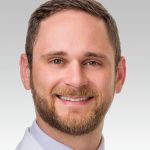 Michael S. Putman, MD, a clinical instructor of medicine at Northwestern University, Evanston, Ill., states outright that he loves rheumatology and evidence-based medicine. While still a second-year rheumatology fellow at Northwestern, he found a way to combine those interests with a third: enthusiasm for podcasts, which he believes offer “a great way to be a continuous learner.”
Michael S. Putman, MD, a clinical instructor of medicine at Northwestern University, Evanston, Ill., states outright that he loves rheumatology and evidence-based medicine. While still a second-year rheumatology fellow at Northwestern, he found a way to combine those interests with a third: enthusiasm for podcasts, which he believes offer “a great way to be a continuous learner.”
Dr. Putman began his EBRheum podcast in January 2018. Since that time, he has posted more than 60 episodes, each between 10 and 20 minutes in length. Each episode applies principles of evidence-based medicine to an important manuscript in the field of rheumatology. His aim, he says, has been to make the critical analysis of published studies an approachable process. With the deluge of scientific literature increasing, Dr. Putman hopes his podcasts “encourage others to be excited about critically reading primary literature.”
When Dr. Putman began the project, his initial plan was to script all of the episodes. He found this impacted the sincerity and authenticity of his monologues, so he converted to a loose outline. Dr. Putman says he strives to strike a happy medium between strict adherence to proved therapies and relying on expert opinion. “I am not a medical nihilist,” he states, and believes rheumatologists should use evidence-based medicine to augment received wisdom and clinical experience.
Dr. Putman is a member of ACR’s Fellows-in-Training Subcommittee, and has been an active and vocal participant in rheumatology advocacy during the COVID-19 pandemic.
Gretchen Henkel is a health and medical journalist based in California.
